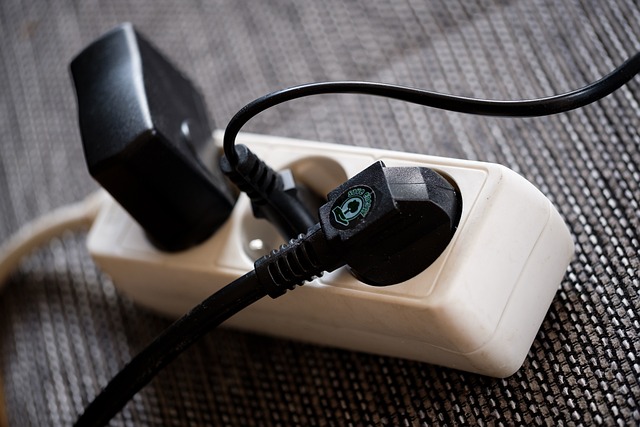In the UK, establishing a Power of Attorney (PoA) allows individuals to appoint someone to manage their financial and personal affairs if they lose mental capacity. The Office of the Public Guardian oversees this process, which requires the donor to have mental capacity and understand the implications of their decisions. PoAs can be customized as general or lasting and must be registered with the OPG for legal recognition, involving checks and a fee. For individuals who speak languages other than English, UK translation services are vital to ensure the accuracy and clarity of the PoA documents. These services also help align the document with the Mental Capacity Act 2005, safeguarding individuals' interests. The UK offers two main types of PoAs: one for property and financial affairs, and another for health and welfare decisions. UK translation services are particularly important for these documents to be legally effective both domestically and internationally. They guarantee that the translated PoA is a true reflection of the original, maintaining its legal validity across borders and safeguarding the principal's wishes.
Navigating the UK’s legal landscape, particularly concerning Powers of Attorney (PoAs), can be a complex task for individuals and professionals alike. This article delves into the essential aspects of PoAs within the UK legal framework, elucidating their role and necessity. We will explore the key components required to establish a Power of Attorney, the different types available, and the critical importance of maintaining compliance with UK legal authorization laws. Additionally, we will highlight the significance of professional translation services when dealing with multilingual PoAs documents to ensure clarity and legality across borders. Join us as we demystify the process and provide best practices for those looking to grant legal authority in the UK.
- Understanding the Role of Powers of Attorney in the UK Legal Framework
- Key Elements and Requirements for Setting Up a Power of Attorney in the UK
- Navigating the Types of Powers of Attorney Available in the UK
- Ensuring Compliance with UK Legal Authorization Laws: Best Practices
- The Importance of Professional Translation Services for UK Powers of Attorney Documents
Understanding the Role of Powers of Attorney in the UK Legal Framework

In the UK legal framework, Powers of Attorney (PoAs) play a crucial role in enabling individuals to plan for their future and ensure their personal and financial affairs are managed according to their wishes should they lose capacity or become unable to make decisions themselves. PoAs allow a person, known as the ‘donor’, to appoint one or more individuals, referred to as ‘attorneys’, to take decision-making responsibilities on their behalf. This legal instrument is flexible and can be tailored to specific needs, encompassing property and financial affairs, health and welfare decisions, or both.
When considering the role of PoAs in the UK, it’s important to understand that they are not a one-size-fits-all solution but rather a personalized strategy for estate planning and management. The process involves careful consideration and often requires guidance from legal experts. For those who require assistance in translating foreign documents or understanding the implications of PoAs within the UK context, UK translation services specializing in legal documentation can provide invaluable support. These services ensure that the true intent of the donor is accurately conveyed and that the legal construct is properly understood by all parties involved. This is particularly pertinent for individuals who may not have a firm grasp of English or are dealing with complex international estate considerations. By leveraging professional UK translation services, individuals can navigate the legal landscape with greater confidence and clarity, ensuring their Powers of Attorney reflect their intentions precisely.
Key Elements and Requirements for Setting Up a Power of Attorney in the UK

In the UK, establishing a Power of Attorney (PoA) involves a clear understanding of the legal framework and the responsibilities it entails. The Office of the Public Guardian (OPG) regulates PoAs in England and Wales, ensuring they are set up with the principal’s best interests at heart. To initiate a PoA, the individual granting the power (the ‘donor’) must have mental capacity, which is the ability to understand the implications of creating a PoA. The donor must choose an attorney or attorneys who will make decisions on their behalf in specified matters, such as financial affairs or health and welfare. The process begins with the completion of the appropriate application forms, where the donor’s preferences and the extent of the attorney’s authority are clearly outlined. It is a legal requirement to involve UK translation services if the donor or attorney does not speak English fluently, to ensure all documents and decisions are accurately communicated. The PoA can be either ‘general’ or ‘lasting’, with the latter allowing the attorney to act even if the donor loses mental capacity in the future.
Once the forms are submitted to the OPG, they must be registered before the PoA is legally valid; this registration process includes identity checks and a fee. The requirements for setting up a PoA also necessitate that the donor understands the nature and effects of the power being granted, which may involve legal advice from a solicitor or legal advisor. This step ensures that the donor is not coerced or misled into granting powers. Additionally, the attorney must acknowledge their duties and responsibilities, including acting in the donor’s best interests and keeping their finances separate from their own. UK translation services play a crucial role in this process to facilitate clear communication and understanding, ensuring compliance with the legal standards set forth by the Mental Capacity Act 2005. This act provides a comprehensive framework for making decisions on behalf of adults who lack the capacity to do so themselves.
Navigating the Types of Powers of Attorney Available in the UK

Navigating the different types of Powers of Attorney (PoA) in the UK is crucial for individuals who wish to plan for their financial and personal welfare, or for those managing affairs for someone else. PoAs are legal documents that allow one person (the ‘donee’) to make decisions on behalf of another (the ‘donor’) in specified situations. In the UK context, there are several types of Powers of Attorney, each tailored to different needs and circumstances. The most common include the Property and Financial Affairs Lasting Power of Attorney (LPA) and the Health and Welfare Lasting Power of Attorney (HWLPA). The LPA allows a chosen individual to handle financial decisions, such as managing bank accounts, paying bills, and making investments. Conversely, the HWLPA enables the donee to make healthcare decisions in line with the donor’s wishes, including medical treatment options and where the person should live.
The UK’s legal framework for PoAs is robust, providing comprehensive guidance to ensure that the donor’s interests are protected. It’s important to note that if an individual does not have a PoA in place and loses mental capacity, a deputyship order from the Court of Protection may be necessary. This process can be more time-consuming and costly compared to setting up a PoA. To facilitate understanding across different languages and cultural contexts, UK translation services are available for those who require assistance in translating Powers of Attorney documents into other languages. This ensures that individuals from diverse linguistic backgrounds can fully comprehend the implications and responsibilities associated with granting a Power of Attorney.
Ensuring Compliance with UK Legal Authorization Laws: Best Practices

When navigating the complexities of legal authorization in the UK, organizations and individuals must adhere to stringent compliance measures as outlined by UK laws. A pivotal aspect of this process is understanding the nuances of Powers of Attorney (PoA), which confer decision-making authority to individuals or entities on behalf of someone else. To ensure seamless compliance, it is imperative to engage with legal professionals who can provide accurate guidance and, if necessary, assist with UK translation services for documents that are not in English. This is crucial as misinterpretation or misuse of PoAs can lead to serious legal ramifications.
Best practices for maintaining compliance with UK legal authorization laws begin with thorough due diligence. This involves a detailed examination of the relevant legislation, such as the Mental Capacity Act 2005, and the establishment of robust internal controls. Organizations should also implement comprehensive training programs for staff to ensure they are well-versed in the legal requirements of handling PoAs. Additionally, maintaining meticulous records and keeping abreast of any changes in legislation are vital steps. Utilizing professional UK translation services is another best practice, particularly when dealing with non-English speaking clients or international documents. By adhering to these practices and staying informed, entities can navigate the legal landscape with confidence and ensure that all authorizations are both legally sound and ethically responsible.
The Importance of Professional Translation Services for UK Powers of Attorney Documents

When an individual in the UK requires a Power of Attorney (PoA) document to be used abroad, the accuracy and legal validity of the translation become paramount. Professional translation services specializing in UK PoA documents ensure that the language barrier does not impede the intended purpose or the legal enforceability of these vital instruments. These services are staffed by translators who are not only proficient in the required languages but also well-versed in the nuances of UK legal terminology, thereby guaranteeing a precise and legally compliant translation. This precision is crucial as PoA documents confer significant authority on the appointed attorney to make decisions on behalf of the principal, including managing financial affairs or making healthcare decisions. The translated document must reflect the original’s intent without any ambiguity to be recognized and respected by foreign authorities. Utilizing professional UK translation services for PoA documents thus safeguards the interests of the principal and ensures that their wishes are honoured across international borders, providing peace of mind in a multifaceted global society.
In concluding our exploration of the complexities surrounding Powers of Attorney in the UK, it is clear that adhering to legal authorization laws is paramount. Whether setting up a Power of Attorney or translating these critical documents for international use, compliance with the relevant regulations ensures the integrity and legality of decisions made on behalf of individuals. Professionals must be well-versed in the nuances of UK Powers of Attorney and the types available to provide informed guidance. Furthermore, utilizing specialized translation services for UK Powers of Attorney documents is essential to maintain accuracy and legal recognition across different jurisdictions. By following established best practices, individuals can rest assured that their affairs are managed appropriately, both domestically and abroad. This comprehensive understanding of the UK’s legal framework for Powers of Attorney, coupled with the use of expert translation services, empowers individuals to make informed decisions and protect their interests effectively.
